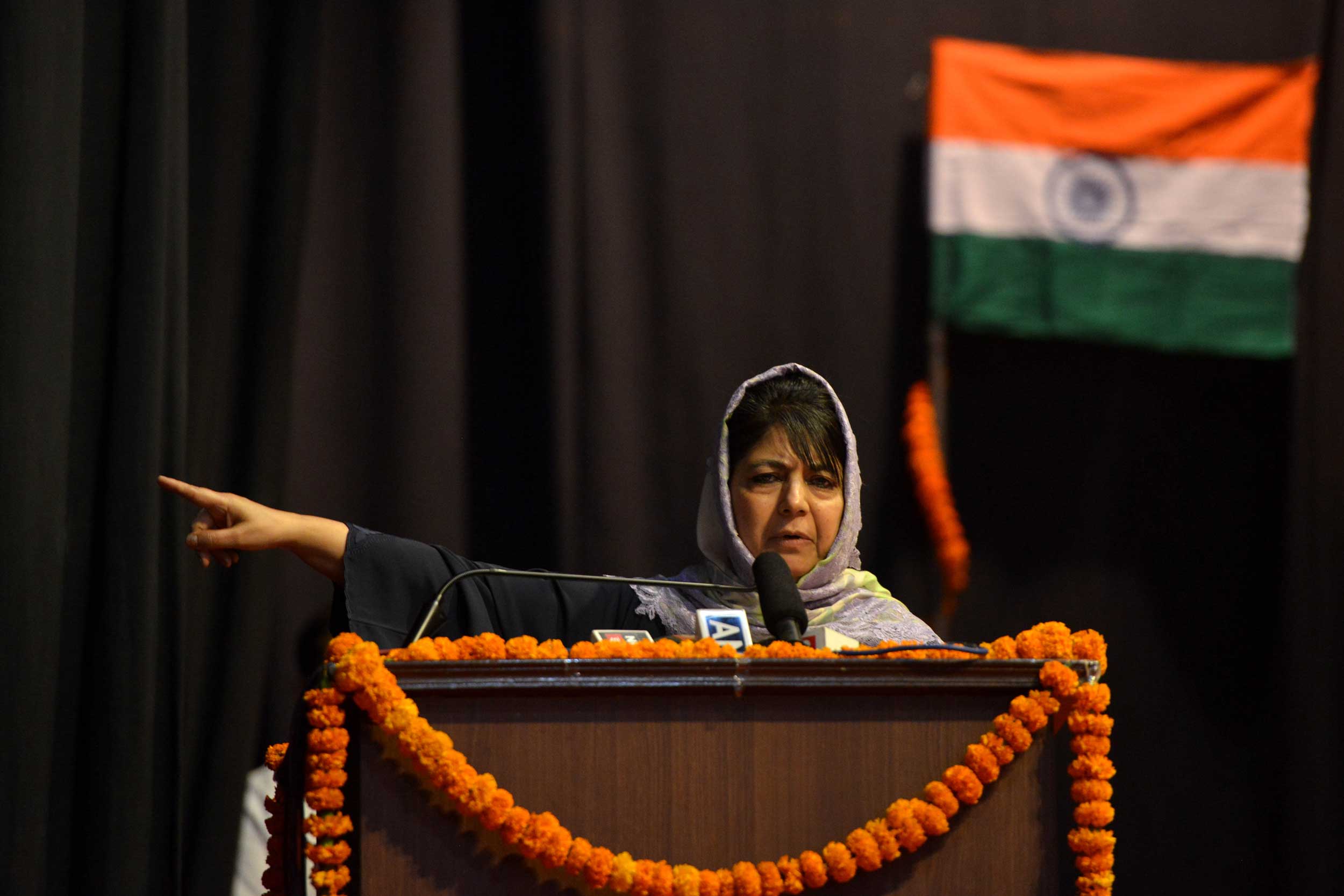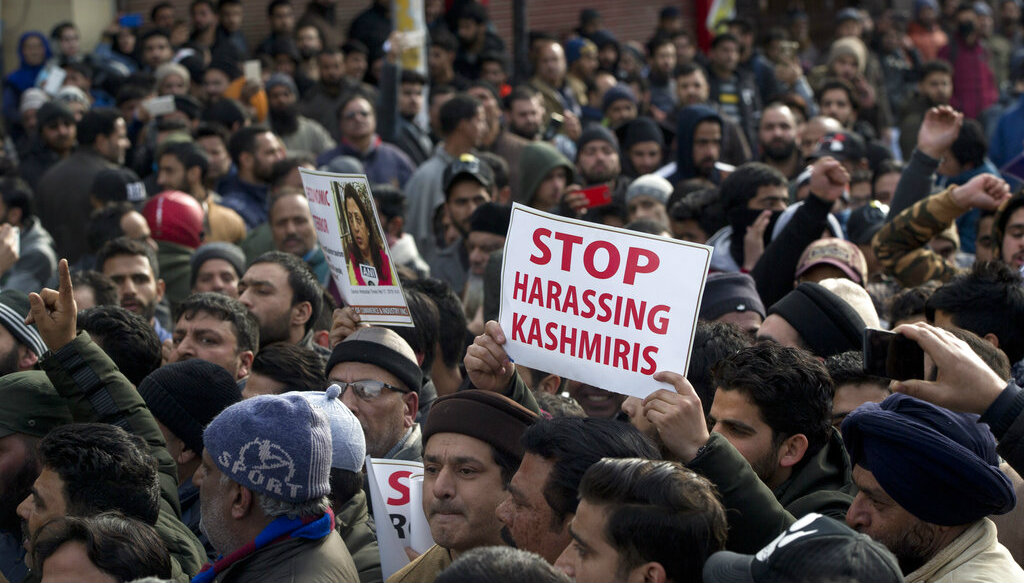Former chief minister Mehbooba Mufti hit Srinagar’s streets with her supporters on Saturday against the Centre’s ban on the separatist Jamaat-e-Islami, with which her party is alleged to have had strong links.
Her protest came as the authorities began sealing properties belonging to the outfit’s leaders and activists and arresting them.
Mehbooba said the Jamaat was an “ideology” that couldn’t be “caged” and sounded a warning about the ban’s possible “dangerous consequences”, without elaborating.
She questioned the ban on a group that has “lakhs of supporters” who she said wielded no swords unlike the “Shiv Sena, RSS and Jana Sangh”.
“(Hindu zealots) have lynched people based on what kind of meat they ate. There is no action against them, but those who have been doing social work for years and running schools are banned,” she told reporters.
The Centre had on Thursday banned the Jamaat for five years saying it was “in close touch” with militant outfits and was expected to “escalate the secessionist movement” in the state. The Jamaat had earlier been banned in the 1970s and again in the 1990s.
The Jamaat is believed to have helped the People’s Democratic Party win elections in the past against their common rival National Conference. But the PDP’s alliance with the BJP, followed by the coalition government’s iron-fist policy against pro-independence protesters, had dented Mehbooba’s popularity and angered many Jamaat workers.
With the alliance now over, the Centre’s ban on the Jamaat has given her an opportunity to regain public sympathy.
As a cadre-based socio-political and religious group, the Jamaat runs hundreds of schools across the state and participated in elections before 1990 while always favouring Kashmir’s accession to Pakistan.
It helped float the Hizbul Mujahideen, treating the militant outfit as its armed wing for years before distancing itself because of a government crackdown. Many in the Valley sympathise with the Jamaat as the spearhead of the pro-Pakistan ideology at the grassroots.
The BJP knew about the PDP’s Jamaat connections when it tied up with the regional party in 2014. Governor Satya Pal Malik had last month openly accused Mehbooba of accepting militant support to win past elections.
In 2015, former RAW chief A.S. Dulat, who also served as adviser to then Prime Minister Atal Bihari Vajpayee on Kashmir, wrote in his memoir Kashmir: The Vajpayee Years that New Delhi knew about Mehbooba’s alleged militant connections very early on.
He claimed Vajpayee had refused to share a stage with her during a public speech in Srinagar in April 2003 because of her alleged Hizb links.
Mehbooba said she had resisted suggestions to ban the Jamaat when she was chief minister because she had not found any proof that it had links with militants.
She asked why the BJP had not acted against the Jamaat for the four-and-a-half years it shared power in the state and suggested it was doing so now because the elections were near.
Her rival Omar Abdullah too criticised the ban, apparently to placate the separatists.
“In the battle of ideas & ideologies we in the @JKNC have always opposed the Jamaat in the political space. The recent ban & crackdown against their leadership, members, schools & properties will serve no purpose except to drive their activities underground,” he tweeted.











